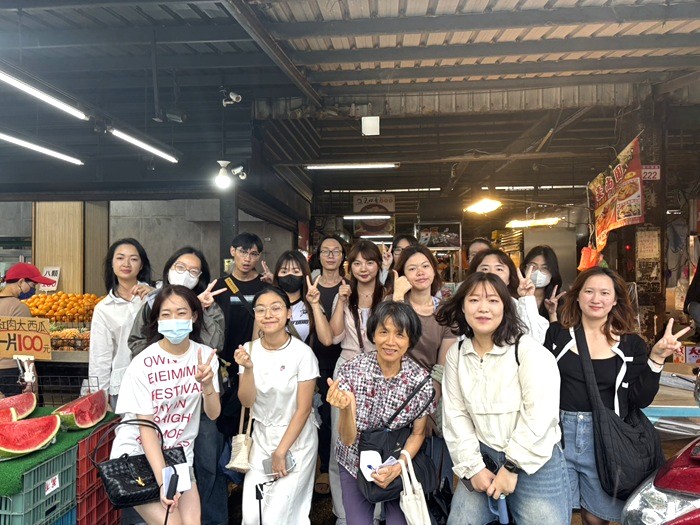To promote local languages and deepen international students’ understanding of Taiwanese culture, the Department of Chinese Linguistics and Literature at Yuan Ze University offered a course titled “Taiwanese and Hakka for International Students,” taught by Fu-Mei Hsu.
The class attracted 20 international students from countries including Korea, Thailand, Vietnam, Malaysia, and Spain. Students came from various colleges such as the College of Humanities and Social Sciences, College of Management, and College of Informatics, with the largest group being from Vietnam.
Fu-Mei Hsu pointed out that Yuan Ze University is located in Taoyuan, an area where Minnan and Hakka communities intersect, yet most international students were unfamiliar with Taiwanese and Hakka. She hoped to use language as a medium to guide students in exploring Taiwan’s linguistic diversity and local culture, emphasizing, “Language is not just a communication tool but also the key to culture.”
The course was designed around the principle of “accessible and engaging interaction,” using phonetic aids, teacher-student dialogues, group exercises, and digital feedback tools to create a relaxed learning environment. The class also introduced various AI learning tools to help students overcome language barriers and increase both interest and effectiveness.
Javier, a student from Spain, interacted fluently in Taiwanese with the teacher from the very first class. He shared, “I learned Taiwanese from grandpas and grandmas in the park. Being able to use it in class is really fun.” Yi-Teng Chou from Thailand also said that because he had a strong interest in languages, learning Taiwanese and Hakka became an enjoyable experience, describing the class as feeling “as pleasant as break time.”
Thi-Thuy-Duong Vo from Vietnam mentioned that she once asked for prices in Taiwanese while shopping at a market, and the vendor didn’t even realize she was a foreigner. This experience gave her a strong sense of accomplishment in language learning. Ye-Bin Oh from Korea said that learning Taiwanese dialects together with classmates from different countries was a “new and interesting experience.”
Fu-Mei Hsu further explained that the course included diverse assessment methods. For the midterm assignment, students were asked to sing a Taiwanese song solo or in groups and record it, using peer review to encourage interaction. For the final project, students recorded video dialogues in Taiwanese and Hakka, with some even adding gestures and role-play, showing exceptional creativity and enthusiasm.
Students’ linguistic backgrounds often became an advantage. Hui-Fang Lim from Malaysia was familiar with Teochew, making learning Taiwanese easier. Vietnamese students, with their foundation in Sino-Vietnamese pronunciation, were particularly sensitive to Southern Chinese languages like Taiwanese and Hakka, often performing very well. Fu-Mei Hsu noted that while many Taiwanese students struggled with entering tones or bilabial nasal finals, Vietnamese students could master them precisely.
She added that to strengthen the course’s practical value, she also planned off-campus activities, taking students to visit night markets and local communities to apply the language in real-life settings. By interacting with residents, students experienced how language functions in everyday life, deepening cultural understanding and exchange.
“Language is no longer just knowledge in a textbook but a real path to understanding Taiwanese culture,” Fu-Mei Hsu emphasized. She hoped this course would become an important starting point for international students to get to know and fall in love with Taiwan. Yuan Ze University has continued to strengthen the connection between international education and local culture, cultivating globally minded talents with strong cross-cultural understanding.


 繁
繁